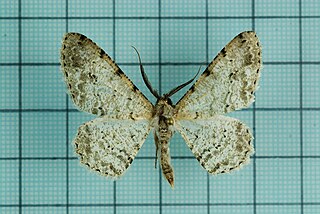
Bambusa is a large genus of clumping bamboos. Most species of Bambusa are rather large, with numerous branches emerging from the nodes, and one or two much larger than the rest. The branches can be as long as 11 m (35 ft).

Rattus is a genus of muroid rodents, all typically called rats. However, the term rat can also be applied to rodent species outside of this genus.

Nepal, officially the Federal Democratic Republic of Nepal, is a landlocked country in South Asia. It is mainly situated in the Himalayas, but also includes parts of the Indo-Gangetic Plain, bordering Tibet of China to the north, and India in the south, east, and west, while it is narrowly separated from Bangladesh by the Siliguri Corridor, and from Bhutan by the Indian state of Sikkim. Nepal has a diverse geography, including fertile plains, subalpine forested hills, and eight of the world's ten tallest mountains, including Mount Everest, the highest point on Earth. Nepal is a multinational state, with Nepali as the official language. Kathmandu is the nation's capital and the largest city.
The Ten Great Campaigns were a series of military campaigns launched by the Qing Empire of China in the mid–late 18th century during the reign of the Qianlong Emperor. They included three to enlarge the area of Qing control in Inner Asia: two against the Dzungars (1755–57) and the "pacification" of Xinjiang (1758–59). The other seven campaigns were more in the nature of police actions on frontiers already established: two wars to suppress the Gyalrong of Jinchuan, Sichuan, another to suppress the Taiwanese Aboriginals (1787–88), and four expeditions abroad against the Burmese (1765–69), the Vietnamese (1788–89), and the Gurkhas on the border between Tibet and Nepal (1790–92), with the last counting as two.

Ajuga, also known as bugleweed, ground pine, carpet bugle, or just bugle, is a genus of 40 species annual and perennial herbaceous flowering plants in the Ajugeae tribe of the mint family Lamiaceae, with most species native to Europe, Asia, and Africa, but also two species in southeastern Australia. They grow to 5–50 cm tall, with opposite leaves.

The Chinese Taipei national football team represents Taiwan in international football and is controlled by the Chinese Taipei Football Association, the governing body for football in Taiwan.

Arisaema is a large and diverse genus of the flowering plant family Araceae. The largest concentration of species is in China and Japan, with other species native to other parts of southern Asia as well as eastern and central Africa, Mexico and eastern North America. Asiatic species are often called cobra lilies, while western species are often called jack-in-the-pulpit; both names refer to the distinctive appearance of the flower, which consists of an erect central spadix rising from a spathe.
The Asia Pacific Greens Federation(APGF) is a federation of national Green parties and related organisations in countries in the Pacific Ocean and Asia, and is one of the four Federations that constitute the Global Greens.

Osmanthus is a genus of about 30 species of flowering plants in the family Oleaceae. Most of the species are native to eastern Asia with a few species from the Caucasus, New Caledonia and Sumatra.

Star Movies is an Asian pay television network originally owned by Fox Networks Group Asia, Middle East and Star TV India. In March 2019, The Walt Disney Company acquired Star TV for $71 billion with 21st Century Fox. Star Movies was originally launched as a single channel broadcast across Asia, but it was regionalised into different localised channels since then. Fox Networks Group Asia Pacific have since rebranded some of the network's international feeds in Hong Kong, Taiwan and Southeast Asia as Fox Movies, but retains the Star Movies brand in Mainland China ,Taiwan ,Middle East & South Asia. Star India continues to operate the Indian feed of the network as a channel specialised in Western films, while the Middle Eastern feed, operated by Fox Networks Group Middle East, co-exists with Fox Movies. Star Movies HD in Taiwan is operated by Fox Network Group Taiwan which was the advertisement-free offering of Fox Movies Taiwan. However From March 2021 Star Movies Taiwan Started Doing Short Advertisement Breaks In Between Movies. Star Movies in Middle East is operated by Fox Network Group Middle East. Star Movies has been changed into Star Movies HD on January 10, 2021.
It is estimated that in the Middle East over 900,000 people profess Buddhism as their religion. Buddhist adherents make up just over 0.3% of the total population of the Middle East. Many of these Buddhists are workers who have migrated from Asia to the Middle East since the late 1990s, many from countries that have large Buddhist populations, such as China, Vietnam, Thailand, Sri Lanka, and Nepal. A small number of engineers, company directors, and managers from Japan, Taiwan, Hong Kong, Singapore, and South Korea have also moved to the Middle East.

Pnoepyga is a genus of passerines endemic to southern and south eastern Asia. Its members are known as cupwings or wren-babblers. The genus contains five species. The genus has long been placed in the babbler family Timaliidae. A 2009 study of the DNA of the families Timaliidae and the Old World warblers (Sylviidae) found no support for the placement of the genus in either family, prompting the authors to erect a new monogeneric family, the Pnoepygidae.

Horsfield's shrew is a species of mammal in the family Soricidae found in Cambodia, China, India, Japan, Laos, Nepal, Bhutan, Sri Lanka, Taiwan, Thailand, and Vietnam.

Lesbian, gay, bisexual, and transgender (LGBT) rights in Asia are limited in comparison to many other areas of the world. Same-sex sexual activity is outlawed in at least twenty Asian countries. While at least eight countries have enacted protections for LGBT people, only Israel and Taiwan provide a wider range of LGBT rights – including same-sex relationship recognition.

Lassaba is a genus of moths in the family Geometridae erected by Frederic Moore in 1888.

An annular solar eclipse occurred on June 21, 2020. A solar eclipse occurs when the Moon passes between Earth and the Sun, thereby totally or partly obscuring the image of the Sun for a viewer on Earth. An annular solar eclipse occurs when the Moon's apparent diameter is smaller than the Sun's, blocking most of the Sun's light and causing the Sun to look like an annulus (ring). An annular eclipse appears as a partial eclipse over a region of the Earth thousands of kilometres wide. This was an annular solar eclipse because the Moon's apparent diameter was 0.6% smaller than the Sun's.

Lassaba acribomena is a moth of the family Geometridae first described by Louis Beethoven Prout in 1928. It is found in Sumatra, Peninsular Malaysia, Borneo and possibly the Philippines.

Lassaba brevipennis is a moth in the family Geometridae. It is found in Taiwan.

Lassaba tayulingensis is a moth in the family Geometridae. It is found in Taiwan.
















